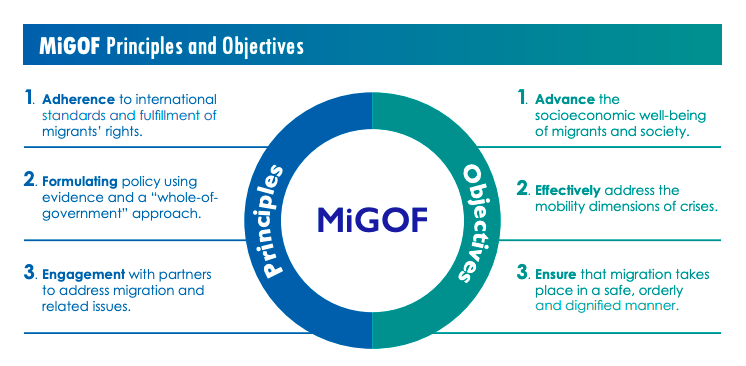IOM Global
The International Organization for Migration (IOM) is the leading intergovernmental organization in the field of migration and is committed to the principle that humane and orderly migration benefits migrants and society. Born in 1951 as an organization mandated to help people displaced by the Second World War, IOM has supported migrants across the world through on-the-ground operations and developed effective responses to the shifting dynamics of migration, establishing itself as a major international actor in the field of human mobility. After 65 years of global operations, IOM formally joined the United Nations system in 2016, and is now the Coordinator and Secretariat for the UN Migration Network, established in 2019.
IOM works with its partners in the international community to:
- Assist in meeting the growing operational challenges of migration management.
- Advance understanding of migration issues.
- Encourage social and economic development through migration.
- Uphold the human dignity and well-being of migrants
- IOM Migration Governance Framework (MiGOF)
-
In 2015, IOM’s Member States endorsed the Migration Governance Framework (MiGOF). The MiGOF sets out three objectives and three principles which, if fulfilled and enacted, form the basis for an ideal approach to migration governance. The MiGOF guides IOM's work in capacity building, providing policy advice and developing specific programmes. This could include training, tools and assessment models. Furthermore, the Framework helps facilitate planning and reporting on how IOM contributes to migration governance, with a focus on results that are measurable and concrete. This improves IOM's ability to give focus to its work, and to measure and communicate its impact.
The MiGOF is comprised of three principles and three objectives:
